
The war between Russia and Ukraine, which has completed its fourth month, has brought a new crisis to the fore involving civilian and military losses and the displaced people, and an extreme increase in natural gas prices and the inability to export grains out of Ukraine that are affecting the global economy. Declassified US intelligence claims that the Russian navy has received the order to plant mines on the ports of Odessa and Ochakiv as well as the Dinyeper River as part of the blockade against Ukraine’s grain exports.[1] Russia rejected this allegation and claimed that Ukraine was the party who is planting mines.
Grave warnings have been voiced for some time regarding the global food crisis. While it is said that the wheat shortage and rising food prices would affect the whole world, it is claimed that it is primarily the COVID-19 pandemic that is devastating the global economy. Ukraine stands in the 10th place in the global wheat exports and carries out 95% of its exports from its Black Sea ports. 19-million-tons-worth of wheat exports were realized within the 2021-2022 season, but it is predicted that this amount will drop by half during the new season. The countries that will be affected the most from Ukraine not being able to conduct its wheat exports will be the receiving countries of Somalia, Benin, Tanzania, Senegal, Egypt, and Sudan. According to the 2020 data of the Food and Agriculture Organization, China is the leading country in wheat production, with its production reaching 134 million tons, while India is in second place in this list with 108 million-tons-worth of production. The ranking continues with Russia, the US, Canada, Australia, France, Pakistan, Germany, and Turkey. As for exports, Russia in first place, followed by the US, Canada, France, Ukraine, Australia, Argentina, Germany, Kazakhstan, and Poland. The United States Department of Agriculture (USDA) report of 12 May 2022 on the world wheat market signifies that consumption will surpass production by 13 million tons during the 2022-2023 period, and the 4-million-worth portion within the low production will originate from Ukraine.[2] Among the findings of the report is that China holds half of the roughly 300 million tons of wheat stock and that Russia is expected to increase its 2021-2022 wheat export of 33 million tons to 39 million tons. Thus, the occupation of Ukraine and its difficulty in realizing its wheat exports constitutes only one reason of the global food crisis, but is not its main determinant.
Century-Long Cycles, Centennial Speculations
Along with numerous other motives, it is being claimed that the global food crisis will create pressure on the US J. Biden Administration to deploy the country’s navy to the Black Sea. In his article in the Proceedings journal (a US Naval Institute publication), Nicholas A. Lambert makes a curious connection between Ukraine’s current issue of access to wheat (thus preventing Ukraine’s wheat from leaving Odessa) and Turkey closing off the Dardanelles Strait in 1914. Moreover, Lambert warns the US administration concerning the disastrous defeat that Britain experienced.[3] Lambert interprets World War I and Britain’s attempt to cross the Turkish Straits in a way that has no basis in historical reality. He evaluates that the motive that led Britain towards the Dardanelles Straits was the prediction that the global wheat price would quadruple, leading to the rationing of bread that risked unrest among the poor as the elections approached, thus preferring the seemingly less costly option of war to prevent the collapse of the government due to factors such as high inflation. Lambert states that the operation turned into a “deadly quagmire, that the “humiliating defeat” led to the fall of the Asquith government, and that the British government was horrified to learn that there was no wheat in Odessa anyway. Lambert writes that the US, during that period as well as today, did not have the option of doing nothing in the face of rising grain prices. However, he adds that sending in the Navy for grain tanker escorting duties or mine-sweeping would be a protracted and high-risk operation. Lambert advises, firstly, to inspect whether the transport network from the farms to the ports, which enables Ukraine’s wheat exports, is in working order and, thus, to monitor the future of the wheat exports’ continuity.
It is not the first time a reference is made regarding the events of 100 years ago when occurrences of today, especially the tensions and conflicts in the Middle East, North Africa, the Balkans, the Eastern Mediterranean, and even the Aegean are being discussed. Perhaps the opinion has emerged that a new economic and political system is necessary for the world, and there are those who propose doing this by following the path of the First World War. But wars cannot be whitewashed. The results of past mistakes cannot be changed by re-enacting the past. History does not always repeat itself, and today's conditions are completely different.
Security Cannot Be Ensured Solely Through Military Means
Considering the Black Sea security as part of its own security today, Turkey is the strongest NATO member in the Black Sea basin. Turkey also resolutely implements the Montreux Convention Regarding the Regime of the Straits, which regulates the transit regime of the Turkish Straits and is a key international treaty in Black Sea security. Turkey's Black Sea policy also rests on solid legal foundations. However, skeptical comments on Turkey's Black Sea policy or alternative policy proposals that do not mention Turkey but are meant to fill Turkey’s place are published from time to time. Despite this, Turkey is a state that has been affected by the Ukraine-Russia war and the subsequent problems it has caused, is active in the decision-making mechanism of NATO, and cares more about the Black Sea security than many other states.
On the other hand, the said articles and suggestions, which mostly originate from the US, are written with a completely militaristic perspective, especially when the subject is the Black Sea’s security. In this regard, former NATO commanders Ben Hodges[4] and James Stavridis take the lead. As a matter of fact, Stavridis also proposes an operation similar to the Operation Earnest Will, which was launched in the Summer of 1987 to maintain the oil flow after Iran closed the Strait of Hormuz, for the struggle against world food shortages, and points out the need to open a “new front involving the allies” in the Black Sea.[5] Such suggestions for carrying the war over to the Black Sea fail to examine all possibilities, exclude alternative methods other than war, do not consider the wreckage it will leave behind, and will thus harm regional peace. It is misleading and dangerous to approach the security of the Black Sea from a solely military perspective. The Black Sea’s security concerns not only the littoral states, but also the Wider Black Sea Region. A permanent, sustainable, and stable peace environment can be created only when it includes economic and commercial cooperation. The other approach, namely the purely military one, means being suffocated by matters such as the Bulgarian Armed Forces not having the weapons, equipment, and manpower need to meet the risks arising from the conflicts in the region; Georgia's efforts not to disturb President of Russia Vladimir Putin in order not to become the next target after Ukraine and its lack of well-trained air and naval forces to support its ground forces in the case of a war.[6] Such approaches ultimately result in the proposal to invite the US to the Black Sea. In fact, while the establishment of the NATO Black Sea Force was being mentioned initially, the proposals have now turned into the deployment of the US Navy to the Black Sea with the task of accompanying the grain shipment and minesweeping. However, the US proposal to build temporary silos on the Polish border for wheat, the French proposal to transport wheat through Romania by rail networks, the UN proposal to transport wheat by sea (to be protected by a UN convoy) from ports to the Bosphorus and, in addition, Turkey’s proposal to create safe routes and zones instead of mine clearance are more realistic.
Presenting military methods as the only option in solving all the issues arising from the Ukraine-Russia war will trigger new crises that will affect not only the region but the entire world. Creating a genuine security environment in the Black Sea would require supporting the economic and political cooperation of all the countries in the Black Sea’s wider basin. Indeed, the Black Sea Economic Cooperation Organization (BSEC), which was established by the treaty signed in Istanbul in 1992, serves this exact purpose. Its functionality has also been supported by collaborative maritime activities such as Black Sea Naval Cooperation Task Group (BLACKSEAFOR), Black Sea Harmony and Black Sea Littoral States Border/Coast Guard Agencies Cooperation Forum (BCSF). Ensuring lasting peace, stability, and security in the Black Sea can be possible through ensuring the functionality of the BSEC. BSEC, which can be considered as a summary of Turkey's Black Sea policy, is the best alternative to the expanding wars that will afflict the whole world. Although it is possible to withdraw from membership with a simple notification, the fact that not a single member of BSEC has made a declaration to leave the organization is an indication that the countries of the region are also hopeful for a peaceful environment linked to the functionality of BSEC. As a way to stop the centennial syndromes and the calls that will turn the Black Sea into a sea of war, we need to seek ways to return BSEC to its former functioning state.
[1] ABD'den 'Rusya' iddiası: Karadeniz limanlarına mayın döşeme emri verildi, CNN Türk, June 24, 2022, https://www.cnnturk.com/dunya/abdden-rusya-iddiasi-karadeniz-limanlarina-mayin-doseme-emri-verildi
[2] For a thorough review of the report: Ali Ekber Yıldırım, “Buğdayda dünyadaki gelişmeler ve Hindistan’ın yasağı”, Dünya Gazetesi, May 17, 2022.
[3] Nicholas A. Lambert, “Look Before You Leap”, Proceedings, June 2022, Vol. 148/6/1,432, https://www.usni.org/magazines/proceedings/2022/june/look-you-leap; Among Nicholas A. Lambert’s work are the books titled Sir John Fisher’s Naval Revolution (1999), Planning Armageddon (2012) and The War Lords and the Gallipoli Disaster (Oxford University Press, 2021).
[4] Ben Hodges, Lauren Speranza, “10 Ways to Boost NATO’s Black Sea Defenses”, April 5 2022, https://cepa.org/10-ways-to-boost-natos-black-sea-defenses/; Gözde Kılıç Yaşın, “Değişen Karadeniz Jeopolitiği ve NATO”, AVİM, May 16, 2022, https://www.avim.org.tr/tr/Analiz/DEGISEN-KARADENIZ-JEOPOLITIGI-VE-NATO
[5] “James Stavridis: The next front in the Ukraine war will be on the Black Sea”, Bloomberg, May 9, 2022, https://www.twincities.com/2022/05/09/james-stavridis-the-next-front-in-the-ukraine-war-will-be-on-the-black-sea/; James Stavridis, “Admiral Stavridis Calls For Black Sea Ship Convoys”, Bloomberg, May 29 2022, https://gcaptain.com/admiral-stavridis-calls-for-black-sea-convoys/; “'New Front' in Russia-Ukraine War Will Emerge in Black Sea: Stavridis”, Newsweek, May 6, 2022, https://www.newsweek.com/new-front-russia-ukraine-war-will-emerge-black-sea-stavridis-1712955
[6] Eugene Kogan, “Black Sea Security in Times of War”, European Security & Defence, April 24, 2022, https://euro-sd.com/2022/04/articles/exclusive/25756/black-sea-security-in-times-of-war/
© 2009-2025 Center for Eurasian Studies (AVİM) All Rights Reserved
No comments yet.
-
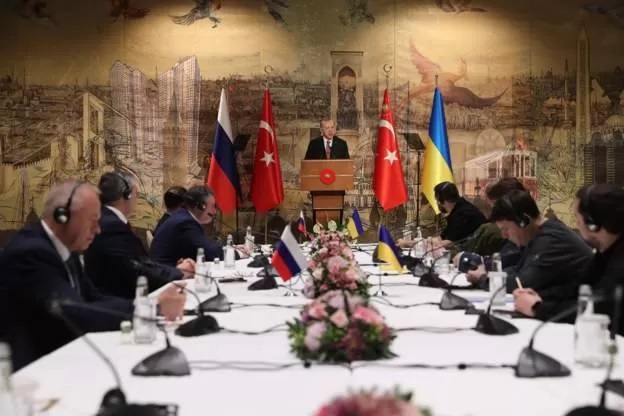 GEARS OF DIPLOMACY: TURKEY JOINING THE EQUATION
GEARS OF DIPLOMACY: TURKEY JOINING THE EQUATION
Gözde KILIÇ YAŞIN 16.05.2022 -
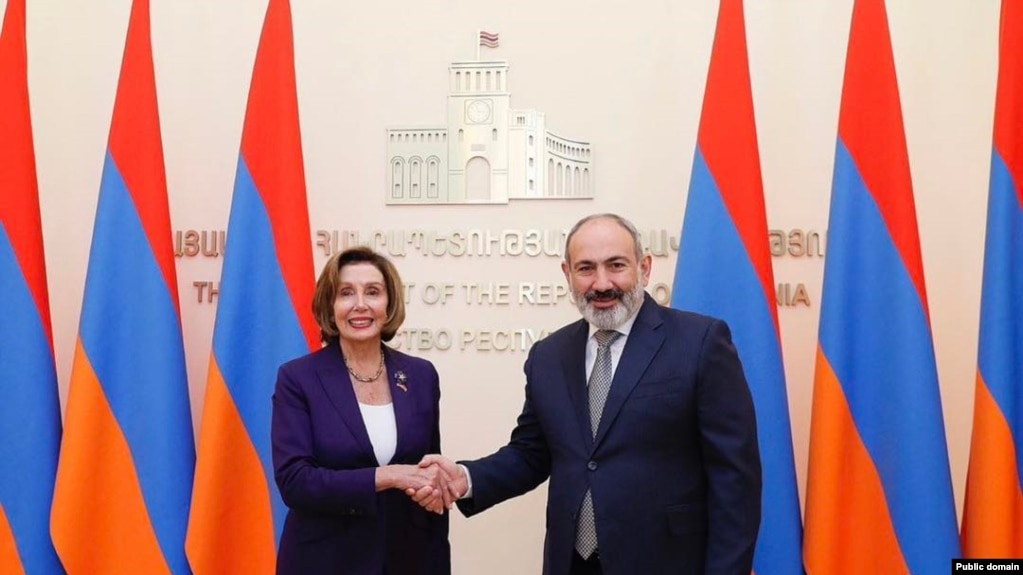 SUPPORT TO ARMENIA, INTIMIDATION AGAINST THE CAUCASUS, BLOCKADE TOWARDS RUSSIA
SUPPORT TO ARMENIA, INTIMIDATION AGAINST THE CAUCASUS, BLOCKADE TOWARDS RUSSIA
Gözde KILIÇ YAŞIN 21.09.2022 -
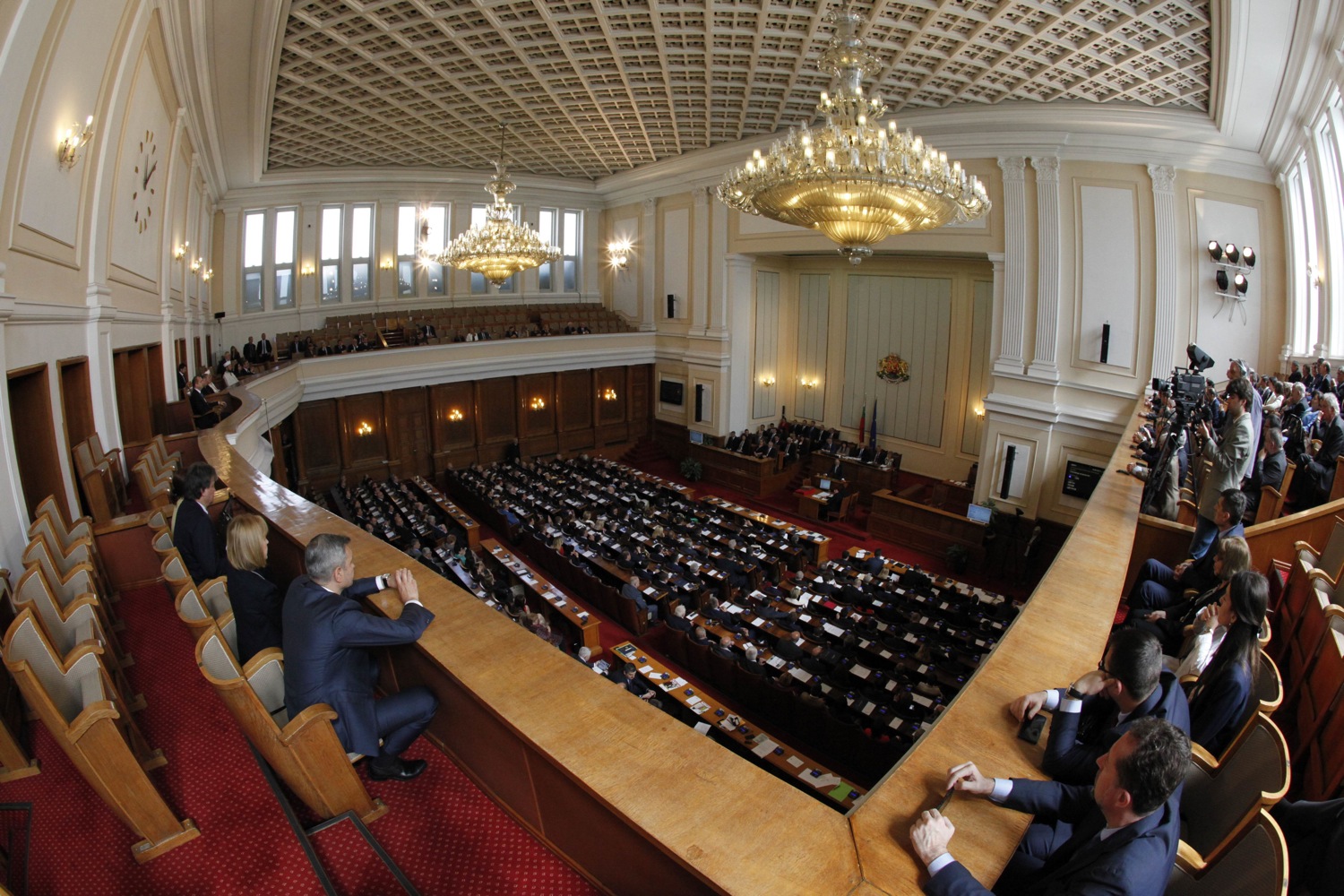 THE NECESSITY FOR A GOVERNMENT THAT CAN PULL BULGARIA OUT OF CRISIS
THE NECESSITY FOR A GOVERNMENT THAT CAN PULL BULGARIA OUT OF CRISIS
Gözde KILIÇ YAŞIN 29.05.2023 -
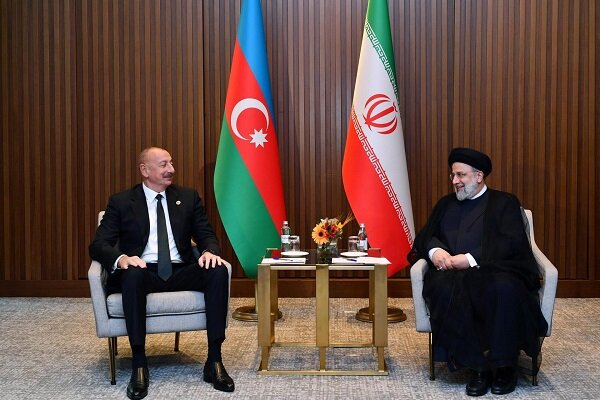 THE CAUCASUS IN IRAN'S FOREIGN POLICY
THE CAUCASUS IN IRAN'S FOREIGN POLICY
Gözde KILIÇ YAŞIN 05.09.2023 -
 THE LEGAL STATUS OF THE FENER GREEK PATRIARCHATE
THE LEGAL STATUS OF THE FENER GREEK PATRIARCHATE
Gözde KILIÇ YAŞIN 19.10.2022
-
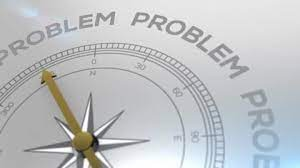 EU STRATEGIC COMPASS FOR SECURITY AND DEFENCE SHOWS THE WRONG COURSE AT THE WORST POSSIBLE TIME
EU STRATEGIC COMPASS FOR SECURITY AND DEFENCE SHOWS THE WRONG COURSE AT THE WORST POSSIBLE TIME
Teoman Ertuğrul TULUN 04.04.2022 -
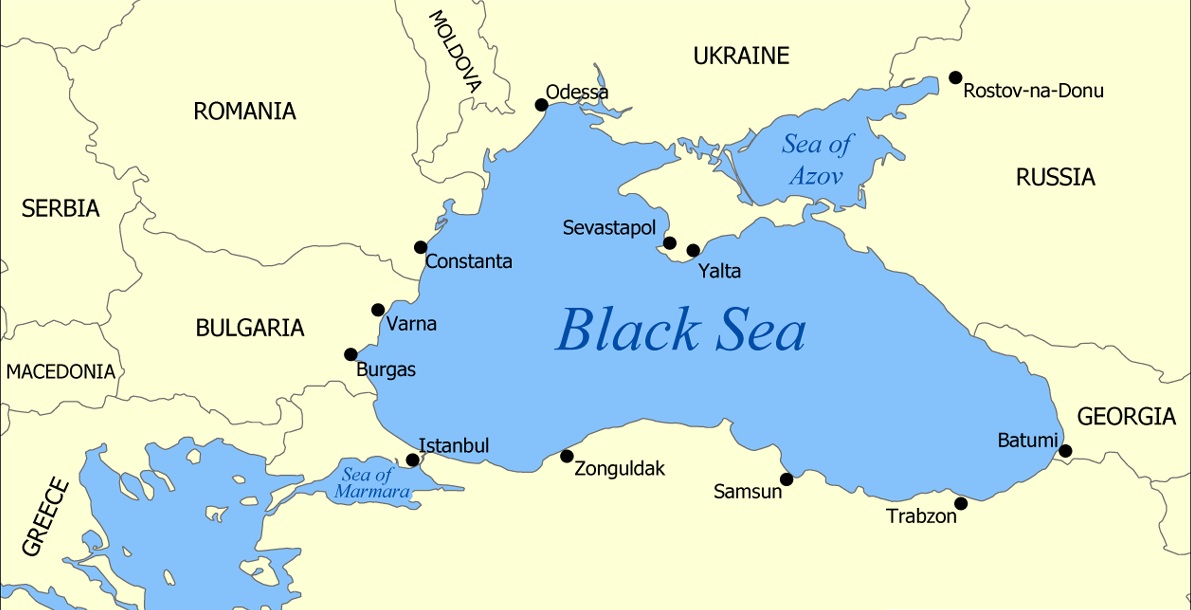 BLACK SEA NEEDS CONFIDENCE AND SECURITY BUILDING MEASURES MORE THAN EVER
BLACK SEA NEEDS CONFIDENCE AND SECURITY BUILDING MEASURES MORE THAN EVER
Teoman Ertuğrul TULUN 30.10.2018 -
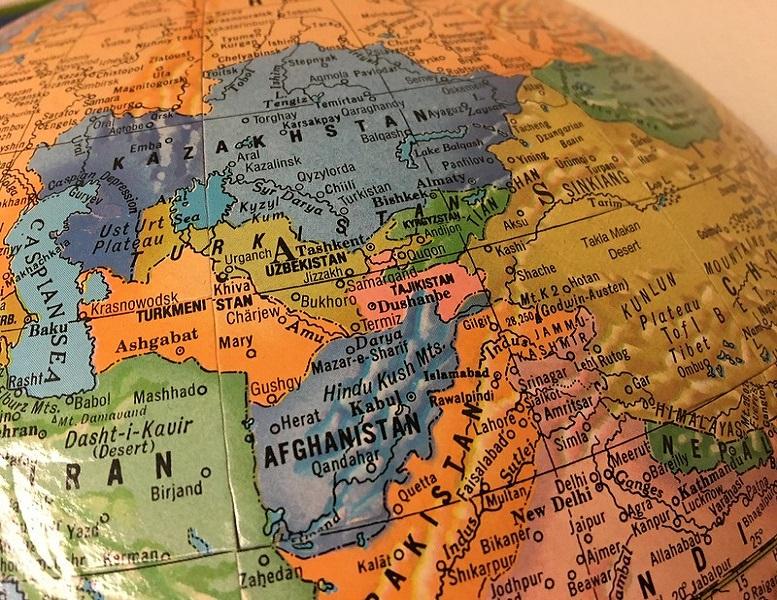 FOREIGN INVESTMENTS IN CENTRAL ASIAN COUNTRIES AND CHINA'S ROLE
FOREIGN INVESTMENTS IN CENTRAL ASIAN COUNTRIES AND CHINA'S ROLE
Gülperi GÜNGÖR 22.12.2020 -
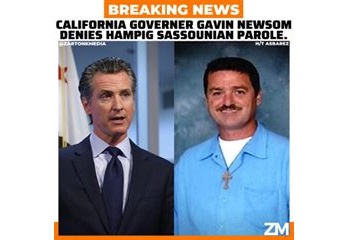 NO PAROLE FOR THE ASSASSIN OF TURKISH DIPLOMAT
NO PAROLE FOR THE ASSASSIN OF TURKISH DIPLOMAT
Hazel ÇAĞAN ELBİR 02.06.2020 -
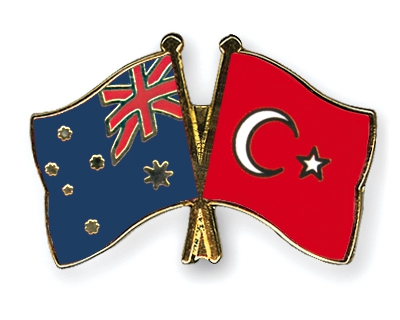 ARE THE SEEDS OF HOSTILITY AGAINST TURKS BEING SOWN IN AUSTRALIA?
ARE THE SEEDS OF HOSTILITY AGAINST TURKS BEING SOWN IN AUSTRALIA?
Teoman Ertuğrul TULUN 10.05.2019
-
25.01.2016
THE ARMENIAN QUESTION - BASIC KNOWLEDGE AND DOCUMENTATION -
12.06.2024
THE TRUTH WILL OUT -
27.03.2023
RADİKAL ERMENİ UNSURLARCA GERÇEKLEŞTİRİLEN MEZALİMLER VE VANDALİZM -
17.03.2023
PATRIOTISM PERVERTED -
23.02.2023
MEN ARE LIKE THAT -
03.02.2023
BAKÜ-TİFLİS-CEYHAN BORU HATTININ YAŞANAN TARİHİ -
16.12.2022
INTERNATIONAL SCHOLARS ON THE EVENTS OF 1915 -
07.12.2022
FAKE PHOTOS AND THE ARMENIAN PROPAGANDA -
07.12.2022
ERMENİ PROPAGANDASI VE SAHTE RESİMLER -
01.01.2022
A Letter From Japan - Strategically Mum: The Silence of the Armenians -
01.01.2022
Japonya'dan Bir Mektup - Stratejik Suskunluk: Ermenilerin Sessizliği -
03.06.2020
Anastas Mikoyan: Confessions of an Armenian Bolshevik -
08.04.2020
Sovyet Sonrası Ukrayna’da Devlet, Toplum ve Siyaset - Değişen Dinamikler, Dönüşen Kimlikler -
12.06.2018
Ermeni Sorunuyla İlgili İngiliz Belgeleri (1912-1923) - British Documents on Armenian Question (1912-1923) -
02.12.2016
Turkish-Russian Academics: A Historical Study on the Caucasus -
01.07.2016
Gürcistan'daki Müslüman Topluluklar: Azınlık Hakları, Kimlik, Siyaset -
10.03.2016
Armenian Diaspora: Diaspora, State and the Imagination of the Republic of Armenia -
24.01.2016
ERMENİ SORUNU - TEMEL BİLGİ VE BELGELER (2. BASKI)
-
AVİM Conference Hall 24.01.2023
CONFERENCE TITLED “HUNGARY’S PERSPECTIVES ON THE TURKIC WORLD"









